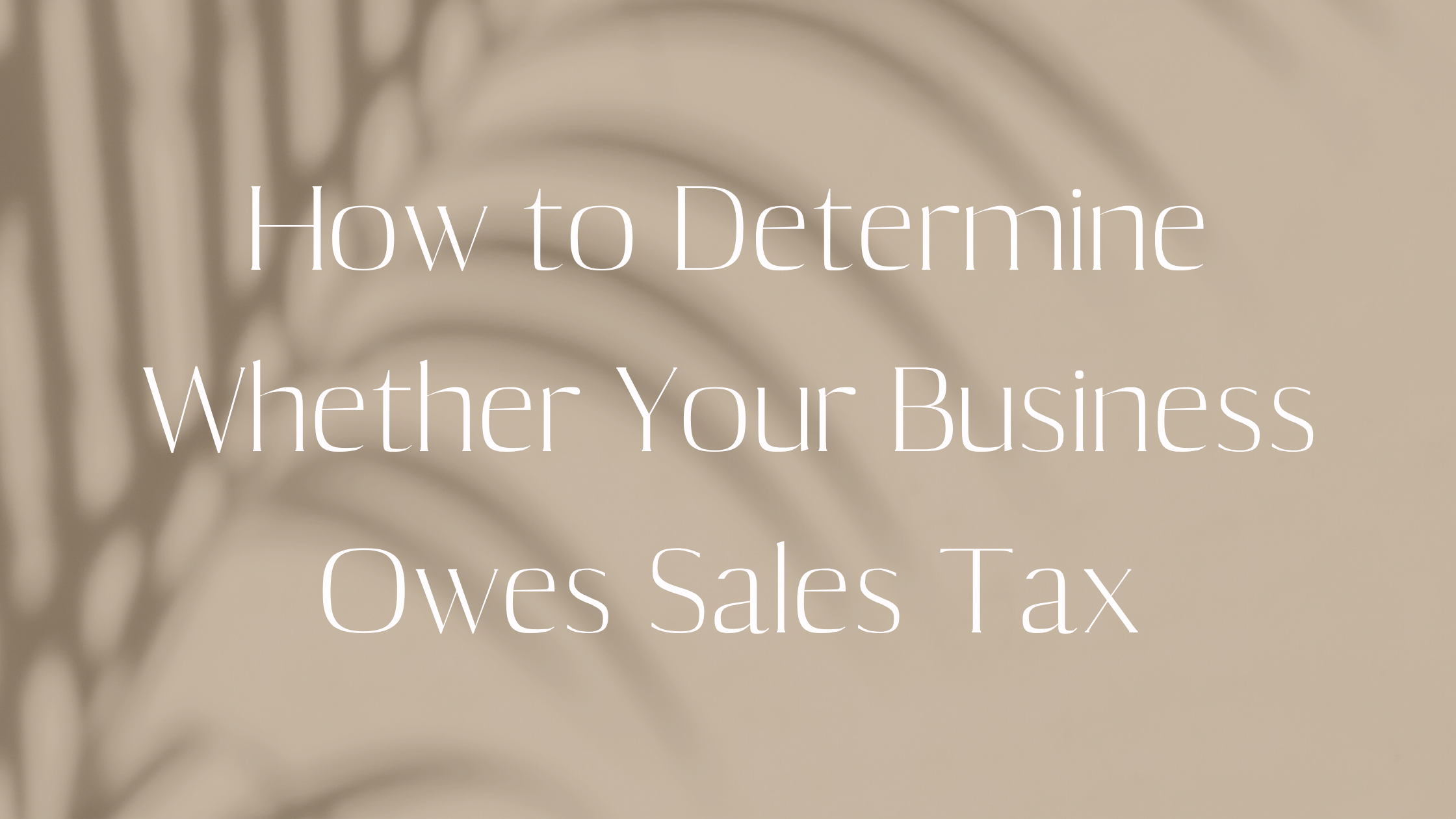How to Determine Whether Your Business Owes Sales Tax
Business owner, let me be clear. What you are doing is hard!
What begins as an idea, a passion or a hobby, can truly become a life changing path. So many things about running a business and building the team to help are true achievements - designing your logo, creating processes, and establishing prices.
While being a female entrepreneur requires us all to wear many hats daily, some tasks, like knowing whether your business owes sales tax, can feel like a punch to the gut.
Sales tax, and determining if your business will be required to pay it back to the state, can be tough to navigate when first starting out. That said, once you get a better idea of what it is and what you need to do to set yourself up for success, you will be able to quickly determine whether your business owes sales tax - if any.
What is Sales Tax?
To start, let’s review what a sales tax is. Simply put, sales tax is a point of purchase levy paid by the person who purchased the taxable goods and services within the border of the taxing authority (which in the United States is either a state, county, or city).
It is the buyer’s responsibility to pay the sales tax, however, it is the responsibility of the seller (that’s you!) to collect that tax and then pay it back to the state, county, or city it is owed to. Sales taxes are required on all cash, credit card, installment, and lay-away transactions.
How do I Know if I Owe Sales Tax?
So, how do you, as the owner, determine if your business owes sales tax? The list of goods and services can be overwhelming and long but there are common categories that exist where you may likely need to pay sales tax.
Taxable items include, but are not limited to: furniture, vehicles, computers, electronics of any kind, appliances, toys, and ecommerce goods.
This is a very general high-level look at what can be taxed. The tricky part is knowing what standards are set in any specific state and when you have crossed the threshold of nexus, or you have sold enough in that state to permit a sales tax payment.
State-by-State Basis
No two states are the same when it comes to what permits a sales tax payment. So it is imperative to research your state's exemptions as well as any local tax rules that are in place and may apply to your business as well.
This may seem like a complicated process, especially with 50 states and different standards to track but there are some applications that can actually make it easier. Like:
You May Also Like:
Next Step
Once you have determined that your product or service requires you to collect sales tax, the next step is to register for a sales tax permit in the state (or states) in which you do business.
When completed, you will receive a Sales Tax ID (or multiples) that you will use when you report your sales tax. When you are ready to start submitting payments you can also use one of the applications suggested above.
Being a female entrepreneur and running your business is exciting and will open a world of possibilities for you. While so many parts of the day-to-day operations are fun, some parts of establishing the business are more detail oriented, like knowing the intricacies around sales taxes.
There are steps every business owner can take to make the process easier, like investing in one of the applications recommended. Another step you can take to make sure the work is fully off your plate is to begin working with an accountant to manage all the moving parts.
At Tatum Accounting we work closely with our clients to make sure their returns are filed on time and accurately. This can be the trickiest part of sales tax with so many deadlines to remember and sales tax numbers to check.
To learn more about what it is like to work with us, click the button below:

